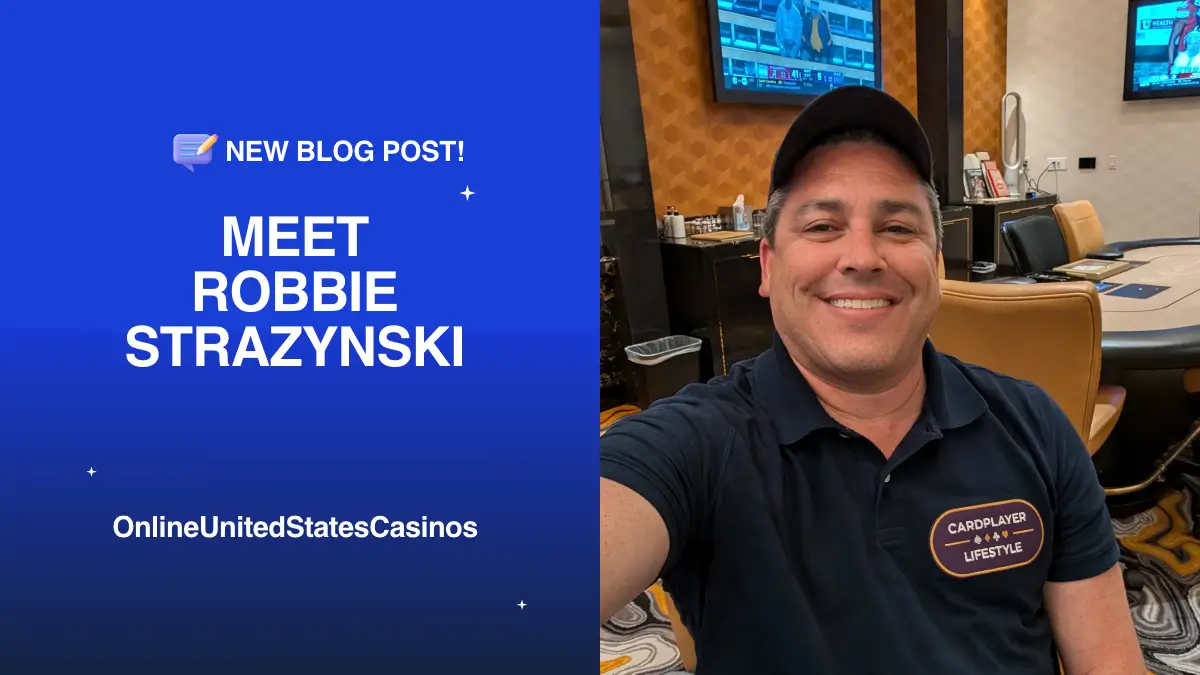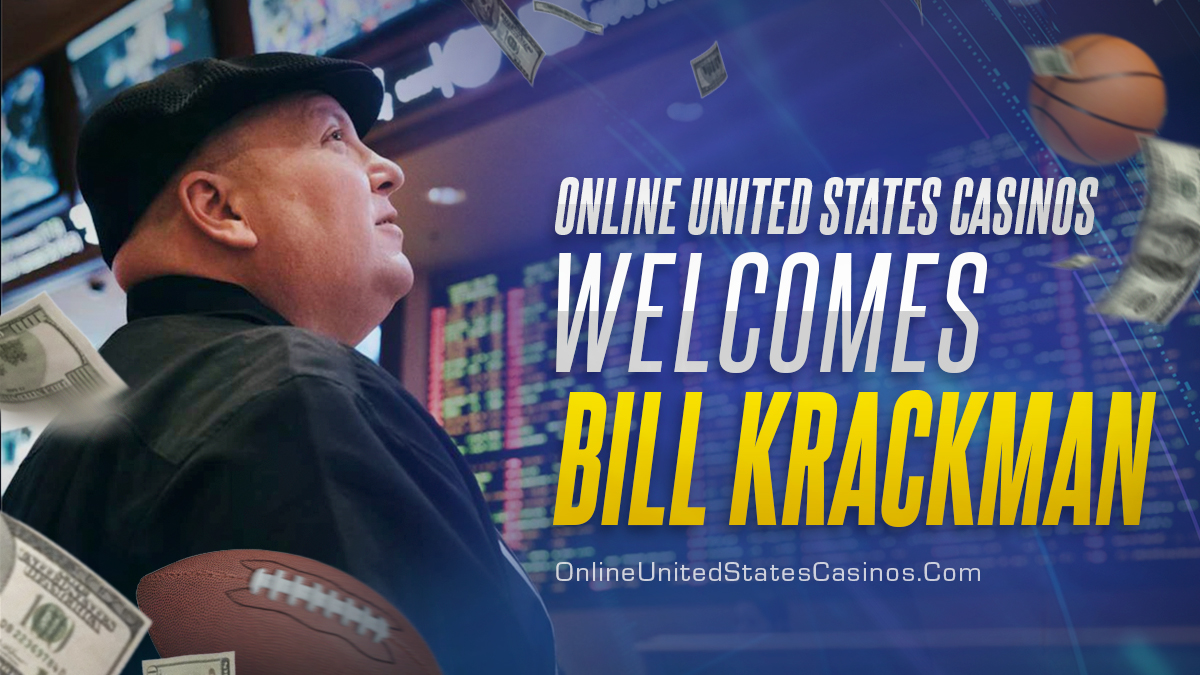How to Become a Casino Dealer (Written by a Vegas Pro)
Being a casino dealer can be an exciting career path, especially for those tired of the typical 9-to-5 office grind. But let’s be real: this isn’t your typical “submit a resume and wait” kind of job.
Instead, it’s a hands-on career where you’ll need to learn casino games, handle money, talk to people, and understand security protocols. If that sounds like your kind of thing, I’m here to show you exactly how to become a casino dealer.
This guide is straightforward and offers real advice based on my experience as a dealer in Las Vegas.
I’ll explain what it takes to land the job, from preparing for an audition and getting your gaming license to networking your way into better opportunities down the road.
What Does a Casino Dealer Do?
A casino dealer (or croupier in some places) is responsible for more than just shuffling cards. Dealers manage games, handle bets, calculate payouts, and provide customer service. This role requires a blend of technical skills and excellent customer service.
Core Responsibilities
- Entertain the guest by being friendly and personable
- Follow the policies and procedures of the game
- Maintain good game security and table protection
- Calculate the math needed for that specific game
- Explaining game rules and procedures to players
Skills You’ll Need to Succeed as a Dealer
To thrive as a casino dealer, you need both technical and people skills. You’ll also need lots of practice at home and on the job. Even experienced dealers constantly sharpen their skills.
Technical Skills
- Shuffling
- Pitching cards
- Cutting and handling chips
- Mental math (a.k.a. math keys)
Customer Service Skills
- Friendliness and charisma
- Good listening
- Reading people
- Patience and professionalism
🚨 Expert tip: I recommend learning as many games as possible. Start with blackjack, as it’s the easiest game to learn and the quickest way into the industry. Then, move on to games like carnival, mini-baccarat, and pai gow poker. Save craps for last. It’s the most complex and typically takes years to master.
How to Become a Casino Dealer in 4 Steps (Summary)
If I had to break it down, this is all you really need to become a casino dealer. Forget the fluff. These are the steps that actually matter. Click each link to jump to the full breakdown, with all my tips and real-world advice.
- Training: Whether you go to a school or learn on the job, you’ll need to master the basics of dealing and understand how games work. There’s more than one way to do it. Just pick the path that works for your situation.
- Apply for a Job: Once you’re trained, it’s time to apply. Be ready for auditions, know what to wear, and expect a personality check. I’ll walk you through how to prep, even if you’re nervous.
- Networking: Making connections is one of the most overlooked parts of this job. Keep track of who you meet and how they like things done. Trust me. Your future self will thank you.
Training & Education Options
There’s no one-size-fits-all path to becoming a dealer. Some people go to a formal school. Others get hired and trained directly on the job. And with the rise of online casinos, there are now even more ways to get started.
In this section, I’ll walk you through the main training routes, what they teach, what to watch out for, and how to decide what works best for you.
Specialized Dealing Schools
These schools are often expensive and hit-or-miss. Some students are left to teach each other, leading to bad habits. Owners of these businesses tend to recommend their favorites for auditions, leaving everyone else waiting for breadcrumbs. Casinos know this and are sometimes hesitant to hire graduates from these programs.
If you’re in Las Vegas, the dealing program at the College of Southern Nevada (CSN) is a solid option. It’s a legit college with experienced instructors and a real curriculum.
Internal Training at a Casino
Every casino is different. Some will hire you with no experience if you’ve got a good personality. Others might require you to pass an audition. Some special ones will require you to attend their internal dealing school first.
In Las Vegas, for example, Circus Circus has its own school. In more remote areas, casinos might offer training because there aren’t any local schools, and they don’t expect prior experience.
Typically, casinos hire based on personality and provide six to eight weeks of training for free. To gain that benefit, you will be required to sign a contract to work for a set amount of time. Leave early, and you might owe them for that training. Always read the fine print before signing any paperwork.
Online & On-the-Job Learning
Free online resources are a great starting point. Not everyone has the time (or budget) to attend a formal dealer school, and the good news is you don’t always need one. Many successful dealers start by learning on the job or using free online tools.
The following resources offer structured online learning options:
How to Land Your First Job as a Casino Dealer
So, you’ve got some training under your belt; now it’s time to actually get hired. This part can feel intimidating, especially if you’ve never auditioned before, but I’ve got you covered.
From how to approach casinos to what to wear and how to calm your nerves, this section will walk you through landing your very first casino job step by step.
Apply for the Job
The first step to getting an audition is to submit an application online through the casino’s website. If H.R. contacts you, they’ll schedule an interview to get a sense of your personality. If you pass that, you’ll move on to the audition.
If H.R. is slow, go in person during the day. Dress in your salt-and-peppers (white long-sleeve shirt, black pants, black socks, black shoes), ask for the shift manager, and request an audition.
You might audition at a live table or in a backroom. Either way, they’re evaluating your skills and how well you interact with people. Personality matters just as much as your dealing skills.
How to Apply for Online Casino Jobs
Online casinos aren’t everywhere, especially in the US, where fewer than 10 states currently allow them. But the industry is growing.
Live casino jobs are more common if you live near a major city. Good places to look include Playtech and Evolution, two big names in live dealer platforms.
You can also search on sites like Indeed or ZipRecruiter. And don’t forget the training programs I mentioned earlier. Many of them also post job openings.
Audition
When you go to the audition, look sharp: clean hair, makeup if you wear it, clean-shaven, and some cologne or perfume. Don’t wear braids or a bun, as this makes it easier to steal cheques and will be seen as a red flag.
Managers will first evaluate your personality. Are you friendly? Do you smile and engage with players? Casinos want someone who can deal while keeping players chatting. You can teach someone to deal, but you can’t teach personality.
After analyzing your personality, the casino will examine your dealing skills. If you’re auditioning at a break-in house, mistakes are expected. It’s okay. You don’t need to be perfect to get hired.
🚨 Expert tip: It is completely normal to be nervous or anxious during an audition. It can be compared to public speaking or acting on stage. If you want to go in with confidence, try this trick. Make a list of 10 casinos. Put your dream job at number one and your least favorite at number ten. Start auditioning from number ten.
This experience will help you gain confidence, and you can get all of the jittery mistakes and nervous butterflies out of your system. By the time you get to the top of your list, you’ll have built up confidence and worked out your nerves.
Get a Gaming License
Once you land the job, you’ll need a gaming license.
In Las Vegas, the casino helps you apply electronically during onboarding. You’ll only be required to submit your fingerprints and send a photo, and after five years, they’ll remind you to renew it. You won’t receive a physical card.
In other states, it may be on you to go to the sheriff’s office and handle everything yourself. It just depends on the location and casino.
The Power of Networking
Connections matter. Connections matter. Building relationships in this industry can open doors you didn’t even know existed.
One of the most helpful tools I recommend is a “little black book.” Use it to keep track of coworkers’ and supervisors’ names, birthdays, favorite games, and how they like things done. Trust me.
Those little details matter more than you think, especially when you’re juggling different games and personalities on the floor.
When you’re assigned to a pit, you can look up that floor supervisor and know exactly what they expect from you. It’s tough to remember every supervisor’s preferences, but your little black book becomes your cheat sheet. It helps you stay sharp, consistent, and professional.
Do the same for regulars who tip well (a.k.a. your Georges). Jot down what they like to talk about, favorite teams, or anything that helps keep the conversation flowing. A little effort goes a long way.
That coworker from your first job? They might be the person who gets you hired at a $100k joint years from now. Networking is huge. Be thoughtful. Take notes. It’ll pay off.
My Journey as a Casino Dealer

I began my casino career in the early 2000s. I was born and raised in Las Vegas, and casinos were a part of life, but I never thought it would be something I’d do. I was a secretary at the time making $8 an hour, which barely covered rent and bills.
My boyfriend suggested I become a casino dealer, but I didn’t have the money to go to school, so he loaned it to me. I went to a dealer school that was way too expensive for the small amount of education they provided. It was students teaching students, and there were no resources available online.
During my time at that school, I demanded an actual education because of all the money I had spent.
The owner didn’t like me and thought I wasn’t ready, so to put me in my place, she sent me to an audition with three of her best students. Her plan backfired, though. I ended up passing the audition and getting a job at that casino along with one other student.
The other two didn’t pass. After I started working there, I learned that dealing schools mostly teach bad habits that casinos have to break. They re-taught me how to deal properly, and I was told that there’s no need to go to school to get a job as a casino dealer.
That experience is the reason I started Vegas-Aces.com and began my journey as an educator.
We provide education for free and help new dealers get jobs without having to pay for school. If someone can’t even afford to put food on the table, how can they afford the kind of education that could actually give them a better life?
*Check out our interview with Heather to learn more about her career in Vegas.
Pros & Cons of Becoming a Dealer at a Casino
Whether you’re dealing cards in a Vegas pit or presenting games in a studio, being a casino dealer is a unique job that comes with its own highs and lows. It can be fast-paced, fun, and full of opportunity, but it also requires patience, flexibility, and a thick skin.
In this section, we’ll break down the pros and cons of both floor and online casino dealer roles so you can figure out which path suits you best.
Pros of Being an Online Casino Dealer
- A growing industry with enormous potential
- Learn the inner workings of live dealer casinos
- Get to know more about live casino production and studio operation
- Don’t have to handle money physically
- Live dealer studios are not everywhere
- You may have to work odd hours
Pros of Being a Floor Casino Dealer
- High-energy, face-to-face interaction
- Direct tipping from players (especially on good nights)
- Opportunity to learn multiple games and move up
- Builds sharp people skills and mental math
- Physically demanding: long hours standing and dealing
- Late nights, weekends, and high-stress environments
- Must handle chips, money, and sometimes drunk or rude players
- Inconsistent income due to fluctuating tips
Final Thoughts
Becoming a casino dealer is a fulfilling career choice for those who thrive in dynamic environments and enjoy interacting with people.
It’s more than just learning how to deal cards. It’s also about excellent customer service, mastering game security, and building lasting industry relationships.
Whether you learn through a school, are self-taught, or have on-the-job training, consistent practice and a great personality are essential.
FAQ
Here are some of the most popular questions I get about gambling dealers and how to become one.
How long does it take to become a casino dealer?
It depends on the game and where you’re training. Learning blackjack can take a few weeks, while craps might take months or even years to master.
What’s the difference between an online casino dealer and a floor dealer?
Online dealers work in studios and interact with players through a camera. Floor dealers work in physical casinos, managing chips, interacting face-to-face, and dealing with real-time table dynamics.
What do online casino dealers see from their side of the screen?
Online casino dealers see cameras, at least one monitor, and maybe a game control unit that encodes the video.
How to apply for an online casino dealer job?
Check platforms like Playtech, Evolution, and even job boards like ZipRecruiter or Indeed. Some studios provide training after you’re hired.
Is it easier to become an online dealer than a land-based one?
The audition process can be less intense for online roles, but both require strong personality, solid game knowledge, and the ability to stay composed under pressure.
Are there any famous online casino dealers?
There are no famous online casino dealers, but they are popular with their own niche audiences. However, you will find a few youtube influencers that have actually worked as one in the past.
What are the most popular job titles for online gambling dealer jobs?
Online croupier, online dealer, and video game presenter are the most popular job titles for online gambling dealer jobs.
What are the best companies to work for as a dealer?
For online dealers: Evolution, Playtech, and Pragmatic Play are major players. For brick-and-mortar casinos: it depends on your location, but top-tier resorts like the Bellagio, Wynn, or Aria are great targets in Vegas.
How to become a live blackjack dealer?
Start by learning the game. Either through a school or online training. Then audition at a break-in house or apply for a live dealer role through a company like Evolution. Blackjack is the fastest game to get hired for.


